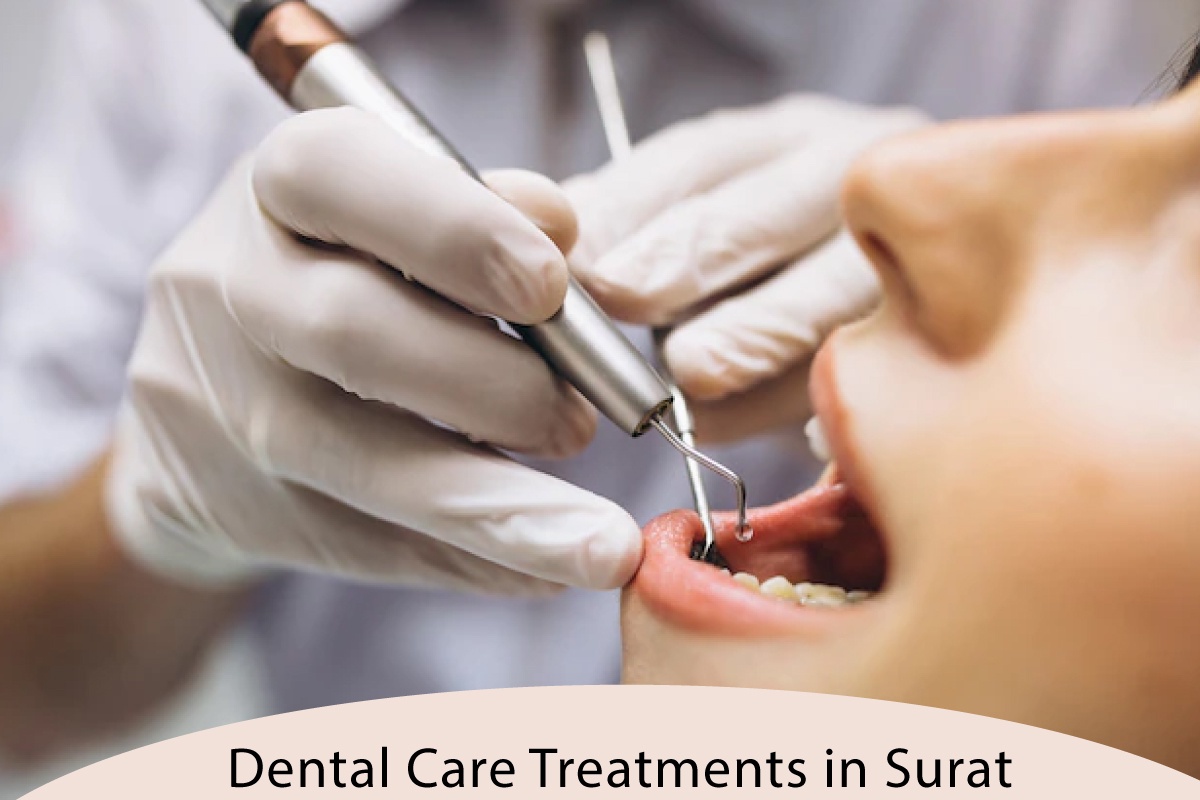Taking care of your teeth is important for your overall health. Dental Care Treatments in Surat play a crucial role in ensuring that our teeth and gums remain healthy and functional. One of the most common dental procedures is the Root therapyIn this blog, we will explore what RCT is, why it is necessary, and debunk some common myths associated with this treatment.
1. Understanding Dental Care Treatments
Before delving into the specifics of Root Canal Treatment, let's have a brief overview of dental care treatments. Regular dental check-ups, cleanings, and preventive measures like fluoride treatments and sealants are essential components of dental care. These measures help prevent tooth decay, gum diseases, and other oral health issues.
When oral health problems arise despite preventive measures, dental care treatments come to the rescue. Treatments such as dental fillings, crowns, bridges, and implants address various dental issues and restore the functionality and aesthetics of teeth.
2. What is Root Canal Treatment (RCT)?
Root Canal Treatment, commonly known as RCT, is a dental procedure designed to save a severely damaged or infected tooth. The treatment involves removing the damaged pulp from the tooth's interior, cleaning the root canals, and sealing them to prevent further infection.
3. When is Root Canal Treatment Necessary?
Root Canal Treatment in Surat becomes necessary when the tooth's pulp, a soft tissue containing nerves, blood vessels, and connective tissues, becomes infected or damaged. This can happen due to several reasons:
- Untreated Tooth Decay: When tooth decay is left untreated, it can penetrate the tooth's outer layers and reach the pulp.
- Deep Cavities: Deep cavities, often caused by neglecting dental check-ups, can lead to pulp infection.
- Dental Trauma: An injury or fracture to the tooth can expose the pulp, making it vulnerable to infection.
- Repeated Dental Procedures: Multiple dental procedures on the same tooth can weaken it, making it susceptible to infections.
- Cracked or Chipped Teeth: Cracks or chips in the teeth can provide an entry point for bacteria to reach the pulp.
4. The Root Canal Procedure Explained
Step 1: Examination and X-rays - Before the treatment, the dentist examines the affected tooth and takes X-rays to assess the extent of the infection and plan the procedure.
Step 2: Local Anesthesia - Local anesthesia is administered to numb the area around the affected tooth, ensuring a pain-free procedure.
Step 3: Pulp Removal - The dentist creates a small access hole in the tooth and carefully removes the infected or damaged pulp from the root canals.
Step 4: Cleaning and Shaping - The root canals are thoroughly cleaned and shaped to prepare them for filling.
Step 5: Filling the Root Canals. Once the root canals have been cleaned and shaped, they are filled with gutta-percha, a biocompatible material, to seal them and stop infection from spreading.
Step 6: Restoring the Tooth - Once the root canals are filled, the access hole is sealed with a temporary filling. In some cases, a crown may be placed to protect the treated tooth and restore its strength and appearance.
5. Debunking Common Myths about Root Canal Treatment
- Myth 1: Root Canal Treatment is Painful - Thanks to modern anesthesia and advanced techniques, Root Canal Treatment is now virtually painless. Most patients report feeling relief from the pain caused by the infected tooth after the procedure.
- Myth 2: Tooth Extraction is a Better Alternative - Saving a natural tooth through RCT is always preferable to extraction. Extracting a tooth can lead to other dental problems and may require additional treatments like dental implants or bridges.
- Myth 3: RCT Causes Illness - There is no scientific evidence supporting the claim that Root Canal Treatment can cause systemic illnesses. It is a safe and effective procedure when performed by a qualified dentist.
Conclusion
Dental care treatments, including Best Dentist in Surat, are essential for maintaining good oral health. RCT is a highly effective procedure to save infected or damaged teeth and alleviate pain. Remember to prioritize regular dental check-ups to prevent dental issues and ensure a healthy smile for years to come. If you suspect any dental problems, consult your dentist promptly to explore the most suitable treatment options, including Root Canal Treatment.


No comments yet